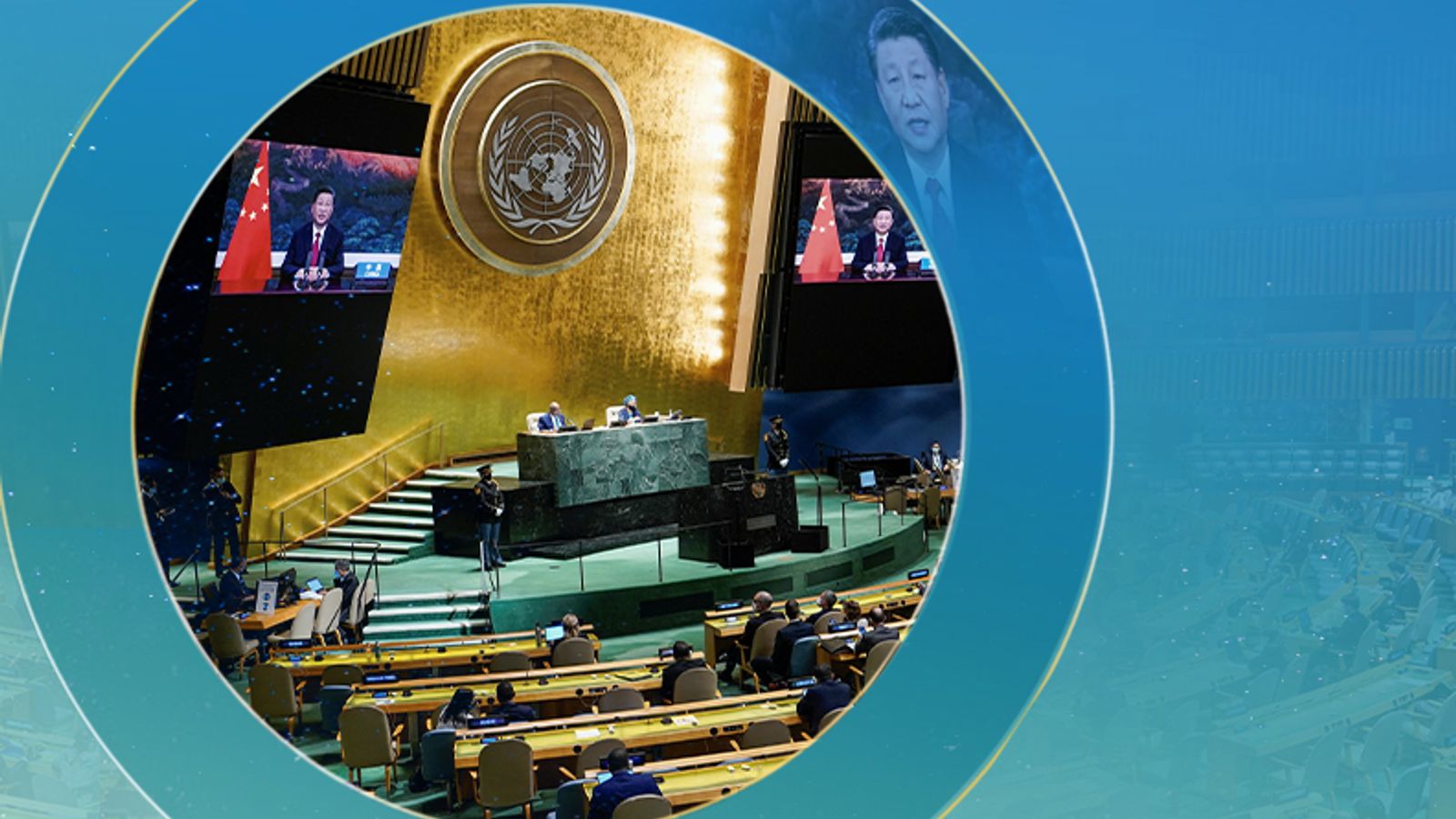China will stop funding new coal-fire projects abroad, President Xi Jinping announced at the United Nations General Assembly (UNGA).
China was the last significant public financier of overseas coal – predominantly in Africa and Asia – delivered under its enormous global infrastructure project known as the Belt and Road Initiative (BRI).
But international pressure on Beijing to stop financing the most polluting fossil fuels has intensified, as the world attempts to meet Paris Agreement targets to prevent runaway climate breakdown.
Please use Chrome browser for a more accessible video player
In a pre-recorded video address, President Xi told the UNGA China will “step up support for other developing countries in developing green and low-carbon energy, and will not build new coal-fired power projects abroad”.
Bernice Lee, director of Futures at global affairs think tank Chatham House, said recipient countries were already “moving away from [coal] plants anyway”.
“But it is a big deal, credit where credit is due,” she said. “It is important that this is now formalised and locked into the system.”
The move could be a significant step towards tackling global emissions, potentially culling $50 billion of investment across 44 projects. The Chinese President did not specify when the commitment would come into effect – although his country has not directed any BRI funding toward coal power plants so far this year.
Markets are uneasy about debt-laden Evergrande – but this is no Lehman moment
France: AUKUS submarine deal has caused one of the gravest rifts among Western allies in living memory
France to recall ambassadors in US and Australia after AUKUS submarine deal snub
But China itself accounts for half of the world’s coal consumption, and its emissions exceed those of the entire developed world combined.
The country’s “substantial domestic plans” for new coal plants is “the next new frontier” said Ms Lee.
The move is not just about tackling climate change but also about geopolitics, according to Dr Rebecca Nadin, director of ODI’s Global Risks and Resilience programme.
“Beijing also hopes the announcement will send a clear message to developing countries that they don’t need to… rely on the US’s ‘Build Back Better World’ (B3W) or the G7’s Clean Green Initiative, if they want a clean energy future.
“The message is now very much that China can provide that, either as financier, technology provider, knowledge broker or development partner.”
The announcement came hours after the US President Joe Biden promised to double his country’s aid to help poorer nations cut emissions and cope with climate change, bringing the total to $11.4bn (£8.3bn).
In May the Group of Seven (G7) countries vowed to end all new finance for coal power abroad by the end of this year, and to rid forever their own power systems of unabated coal in the 2030s.
China’s announcement could help galvanise COP26, United Nations (UN) climate talks hosted in Glasgow in November, as it had been under pressure to end the financing as a part of its updated package of climate pledges to be submitted to the UN.
However China has yet to confirm it will attend the talks, the COP26 president Alok Sharma told Sky News on Sunday.
China was the biggest financier of coal projects abroad – so Xi’s pledge is a big deal. Simply, “it leaves no international financing for new coal”, according to Lauri Myllyvirta, an analyst at the Centre for Research on Energy and Clean Air (CREA).
Coal’s appeal had been waning internationally. A recent analysis from CREA found that overseas coal capacity linked to China was more likely to be cancelled than built, because of economic reasons and public opposition.
But this is now the official end – and hopefully prevents overseas coal creeping back if conditions were to improve.
So, good news. But, as ever, the more important issue is China’s own use of coal.
It still relies on it a huge amount and remains the world’s biggest polluter. Xi has promised that emissions will peak by 2030
But even if that is achieved – and that’s a big if, with new coal power stations still being built – experts say it will be too late to prevent the worst effects of warming.
Watch the Daily Climate Show at 6.30pm Monday to Friday on Sky News, the Sky News website and app, on YouTube and Twitter.
The show investigates how global warming is changing our landscape and highlights solutions to the crisis.






















